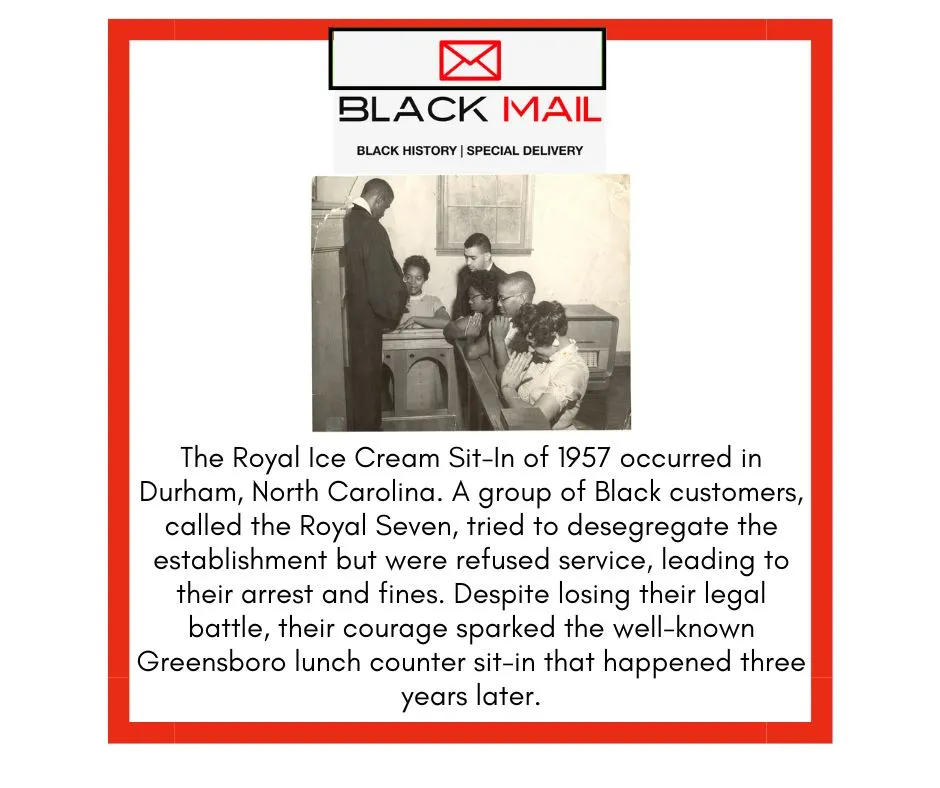
Welcome To Black Mail, where we bring you Black History—Special Delivery!
On June 23, 1957, the Royal Ice Cream Sit-In took place in Durham, North Carolina. Douglas E. Moore led the nonviolent protest. Moore and seven other protestors walked into the Royal Ice Cream Parlor and took a seat in the whites-only section. The sit-in took place on a Sunday afternoon following services at Ashbury Temple United Methodist Church, where Moore was pastor. The other seven protestors were also members of the church.
The group tried to order but was denied service. Both a busboy and the owner then instructed them to relocate to the designated “colored” area. When the group refused, the owner called the police. Before the police arrived, one member of the group left. All of the others stayed (Elizabeth Clyburn, Vivian Jones, Virginia Williams, Claude Glenn, Jessie W. Gray, Melvin Willis, and Rev. Doug Moore.). The Durham Police arrested the group, dubbed the “Royal Seven.” Convicted of trespassing, the protestors were fined ten dollars in addition to court costs. They appealed the decision, and on July 16, 1957, an all-white jury upheld the guilty verdict, and the protestors were fined an additional $25.
The sit-in ignited debates not only within the white community but also among black residents, causing divisions. Many in the black community believed that the protestors would only exacerbate existing problems and that they were being influenced by a young minister with radical views, whom they considered an outsider. In January 1958, the North Carolina Supreme Court upheld the judgment of the North Carolina Superior Court. Moore and his fellow protestors attempted to appeal to the U.S. Supreme Court. Their case was rejected on the grounds that their rights had not been violated. Consequently, they were fined $433.25.

Despite the Royal Seven’s legal setbacks, their actions marked the first significant challenge to North Carolina’s segregation laws. Their bravery also served as a catalyst for the successful Greensboro sit-ins, which occurred about three years later. In a 2003 interview, protestor Virginia Williams recalled the experience: “It was thrilling, because we ventured where we were forbidden. I wasn’t afraid, because either way, we could have made history. If he had served us ice cream, he would have made history. But, by refusing, I suppose we made history!“
Another installment of melanated mail has been delivered. Ponder, reflect, and pass it on.


